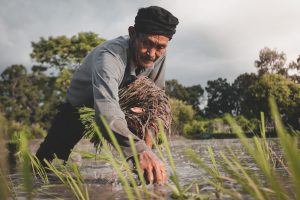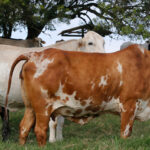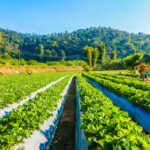Masanobu Fukuoka (1913–2008) was a Japanese farmer and philosopher celebrated for his natural farming and re-vegetation of desertified lands. He was a proponent of a no-till, no-herbicide grain cultivation method commonly referred to as “Fukuoka Farming” or “Do-Nothing Farming”.
Fukuoka believed in a philosophy of working with nature rather than trying to control it. His method revolves around the concept of observing and adapting to the natural rhythms and processes of the Earth. Here are some of the key principles of his method:
- No Tillage: Fukuoka believed that plowing and turning the soil disrupts the natural environment and leads to soil degradation. Instead, he advocated for no-till agriculture, which allows the soil structure to remain intact, preserving the community of microorganisms and other life in the soil.
- No Synthetic Fertilizers or Prepared Compost: Instead of relying on synthetic fertilizers or prepared compost, Fukuoka believed in using natural materials to build fertility. This often involved the use of green manures, cover crops, and the natural leaf fall and plant residues from previous crops.
- No Weeding by Cultivation or Herbicides: Instead of removing weeds by cultivation or chemical means, Fukuoka believed in using nature to control weed growth. This often involved the use of ground covers and the timed planting of crops to outcompete the weeds.
- No Dependence on Chemicals: Fukuoka’s method is completely organic and uses no chemical inputs.
- Seeding with Clay Balls: One of Fukuoka’s unique methods was to mix seeds with clay and compost to form small balls. These balls protect the seeds from being eaten by birds or insects and ensure that they have the nutrients they need to get started.
Fukuoka’s approach is a holistic one, seeking not just to grow crops, but to create a balanced ecosystem that is sustainable and harmonious with nature. It requires careful observation and understanding of the local environment and natural processes. It’s also worth noting that while Fukuoka had great success with his methods, they may not be applicable or effective in all contexts and climates. Every piece of land is unique and requires its own unique approach to farming.












